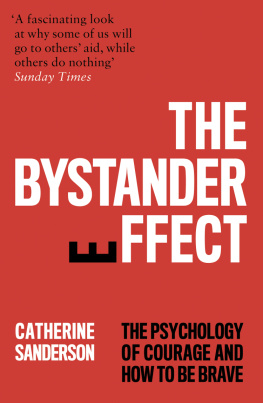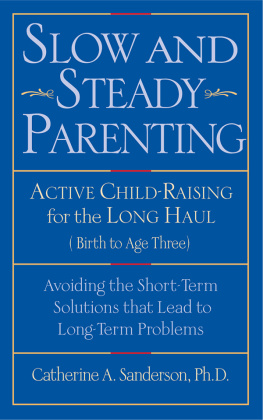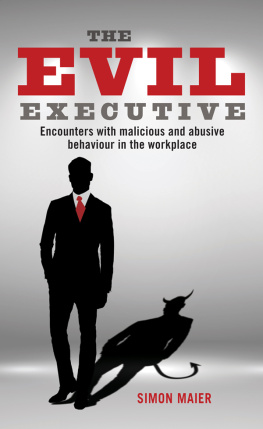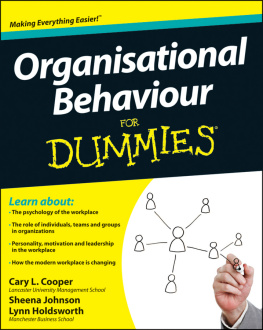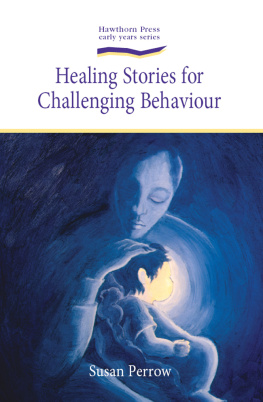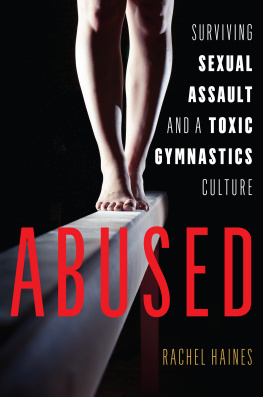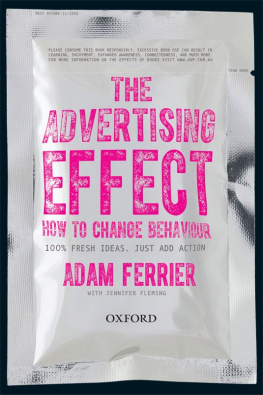Contents
Contents
Guide
THE BYSTANDER EFFECT
The Psychology of Courage and Inaction
Catherine A. Sanderson

Catherine A. Sanderson is the Manwell Family Professor in Life Sciences at Amherst College. Her research examines how social norms and their misperception influence health-related behaviour on campus, including safe sex and disordered eating. An experienced speaker, Dr Sanderson gives talks on the science of happiness and the psychology of good and evil to groups and businesses. She has been chosen by Princeton Review as one of Americas Best Professors and is the author of The Positive Shift: Mastering Mindset to Improve Happiness, Health, and Longevity.
William Collins
An imprint of HarperCollinsPublishers
1 London Bridge Street
London SE1 9GF
WilliamCollinsBooks.com
HarperCollinsPublishers
1st Floor, Watermarque Building, Ringsend Road
Dublin 4, Ireland
This eBook first published in Great Britain by William Collins in 2020
Copyright Catherine A. Sanderson 2020
Cover design by Steve Leard
Catherine A. Sanderson asserts the moral right to be identified as the author of this work
A catalogue record for this book is available from the British Library.
All rights reserved under International and Pan-American Copyright Conventions. By payment of the required fees, you have been granted the non-exclusive, non-transferable right to access and read the text of this e-book on-screen. No part of this text may be reproduced, transmitted, down-loaded, decompiled, reverse engineered, or stored in or introduced into any information storage and retrieval system, in any form or by any means, whether electronic or mechanical, now known or hereinafter invented, without the express written permission of HarperCollins
Source ISBN: 9780008361662
Ebook Edition April 2020 ISBN: 9780008361648
Version: 2021-01-13
T O A NDREW , R OBERT , AND C AROLINE ,
with hope that you will never stay silent about things that matter
On August 25, 2017, my husband and I spent the day settling in our oldest child, Andrew, for the start of his first year at college. We went to Walmart to buy a minifridge and rug. We hung posters above his bed. We attended the obligatory goodbye family lunch before returning to our car to head home to a slightly quieter house.
Two weeks later Andrew called, which was unusual since, like most teenagers, he vastly prefers texting. His voice breaking, he told me that a student in his dorm had just died.
As he described it on the phone, the two of them seemed to have so much in common. They were both freshmen. They were both from Massachusetts and had attended rival prep schools. They both had younger brothers.
What happened? I asked.
He told me the student had been drinking alcohol with friends. He got drunk, and around 9 p.m. on Saturday, he fell and hit his head. His friends, roommate, and lacrosse teammates watched over him for many hours. They strapped a backpack around his shoulders to keep him from rolling onto his back, vomiting, and then choking to death. They periodically checked to make sure he was still breathing.
But what they didnt dofor nearly twenty hours after the fallwas call 911.
By the time they finally did seek help, at around 4 p.m. on Sunday, it was too late. The student was taken to a hospital and put on life support so that his family could fly in to say goodbye.
Now, its impossible to know whether prompt medical attention could have saved his life. Perhaps it wouldnt have. But what is clear is that he didnt get that opportunity. And this storyof college students failing to do anything in the face of a serious emergencyis hardly unusual.
Its not just college students who choose not to act, even when the stakes are high. Why did most passengers sit silently when a man was forcibly dragged off a United Airlines flight, recorded on a video that then went viral? What leads people to stay silent when a colleague uses derogatory language or engages in harassing behavior? Why did so many church leaders fail to report sexual abuse by Catholic priests for so many years?
Throughout my careeras a graduate student at Princeton University in the 1990s and as a professor at Amherst College over the last twenty yearsmy research has focused on the influence of social norms, the unwritten rules that shape our behavior. Although people follow these norms to fit in with their social group, they can also make crucial errors in their perception of these norms. The more I thought about these seemingly disparate examples of people failing to act, the more I began to see the root causes as driven by the same factors: confusion about what was happening, a lack of a sense of personal responsibility, misperception of social norms, and fear of consequences.
I have discovered through my own work that educating people about the power of social norms, pointing out the errors we so often make in perceiving these norms and the consequences of our misperceptions, helps them engage in better behavior. Ive done studies that show that freshman women who learn how campus social norms contribute to unhealthy body image ideals show lower rates of disordered eating later on, and that college students who learn that many of their peers struggle with mental health challenges have a more positive view of mental health services. Helping people understand the psychological processes that lead them to misperceive what those around them are actually thinkingto believe that all women want to be thin, that other college students never feel sad or lonelyreduces the mistakes and misunderstandings we make about other people and can improve our psychological and physical well-being. It can also push us to act.
In my very first introduction to psychology as an undergraduate at Stanford in 1987, I remember being fascinated when I learned how much being in a group influenced our own behavior. I was fortunate enough to have Phil Zimbardowhose Stanford Prison Experiment remains one of the most famous and controversial studies in psychologyas my professor. It was quite an introduction to the field of social psychology!
Back then, researchers could design experiments and measure peoples behavior, but we couldnt penetrate the mechanisms that explained them. We couldnt see what was happening in the brain. Recent breakthroughs in neuroscience have completely changed that. It is now possible to see in real time how certain scenarios, pressures, and experiences play out in the brain. As Ill describe throughout this book, these results have revealed that many of the processes that drive inaction occur not through a careful deliberative process, but at an automatic level in the brain.
My goal in writing this book is to help people understand the psychological factors that underlie the very natural human tendency to stay silent in the face of bad behavior, and to show how significant a role that silence plays in allowing the bad behavior to continue. In the first half of the book, I describe how situational and psychological factors can lead good people to engage in bad behavior (Chapter 1), or, more commonly, to stay silent in the face of bad behavior by others (Chapters 2 to 5). Next, I show how these factors play out to inhibit action in distinct real-world situations, including bullying in school (Chapter 6), sexual misconduct in college (Chapter 7), and unethical behavior in the workplace (Chapter 8). I end by examining how some people are more able to stand up to others and what we can learn from these moral rebels (Chapter 9). In the closing chapter I look at strategies we all can useregardless of our personalityto increase the likelihood that we will speak up and take action when we are most needed.

